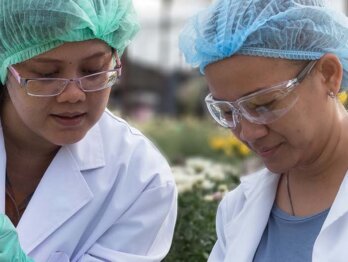New days — Danish local and regional government exploring the future of ageing

This case explores how a diverse group of Danish organisations and local governments are actively using alternative future scenarios to identify- and experiment with new public services for elderly care.
This case is focused on providing examples of how to co-create alternative future scenarios and collectively outline a common preferred future to guide experimentation. The project is still on-going.
Description
New Days is an experimental, design-based, and co-creative initiative, with a vision of bringing stakeholders around ageing together to find a new guiding narrative for how to approach ageing and elderly care. The main challenge explored in the project was “How do we live longer, valuable lives?”
The project is a partnership initiated by Danish Design Center between several Danish municipalities, a Danish region, the think tank Mandag Morgen, and Danish Life Science Cluster. Beyond the group of partners, the project has involved actors from all across the system, incl. researchers, designers, and various companies offering everything from pensions to health tech, who’ve participated in the exploration of possible and preferred futures.
Design
The goal of the project is to contribute with new perspectives on how we understand ageing and its impact on our lives – and how the system around us handles and treats us as we age. To do this, a process was designed that included two phases:
The first phase was a six month long process leading to the development of a set of future scenarios. Over a series of three main workshops the partner group along with various other invited actors explored and discussed the past, present, and future ageing. They co-created distinct and provocative alternative future scenarios, and converged on what a preferred future would include.
“Workshop 1: Past, present, future” focused on understanding the problem space. Participants explored the problem through an ‘unconference’ format, made a timeline of the various events and developments that brought us to where we are today, and took part in a collaborative horizon scan, identifying weak signals and major drivers of change.
“Workshop 2: Alternative futures” focused on opening up the opportunity space through scenarios. It provided inspiration through talks and fiction, and had participants building alternative future scenarios using images, words, questions, personas, and sketches of artefacts.
“Workshop 3: The preferred future” focused on finding a common understanding of what preferred future would be. Participants revisited the alternative futures and used it as a basis for discussions. They used tabletop simulations to enact situations from the preferred future and discussed what changes it would require.
A scenario kit is being made based on the output of the workshops. The scenario kit will be used as a framework for debates, political dialogues, and innovative development processes in each of the participating municipalities and regions.
The second phase focuses on active experimentation in the participating municipalities and regions based on the insights discovered throughout the first phase. This will be done by launching a series of local Policy Life Labs. The Lab focuses on the structures and decision-making forces that exist in the political arena. The experience from the experiments is carried into the Lab to ensure a connection between the decision-making level and the new solutions at the operational level. This guarantees change at a strategic political level and an operational and practical level. That’s essential to secure change and real transformation through the initiative’s efforts.
Impact
The project is still in development, and therefore the final impact is yet to be seen. However, for now the project has sparked new collaborations and opportunities across different municipalities. By involving a diverse group of actors in the process, new perspectives have emerged. Through out each workshop, new knowledge has been gained, not only specified the outcome of the project, but also in relation on how to use the methods in a co-creation process.
Further information
For more information on the process feel free to reach out to Danish Design Center.



